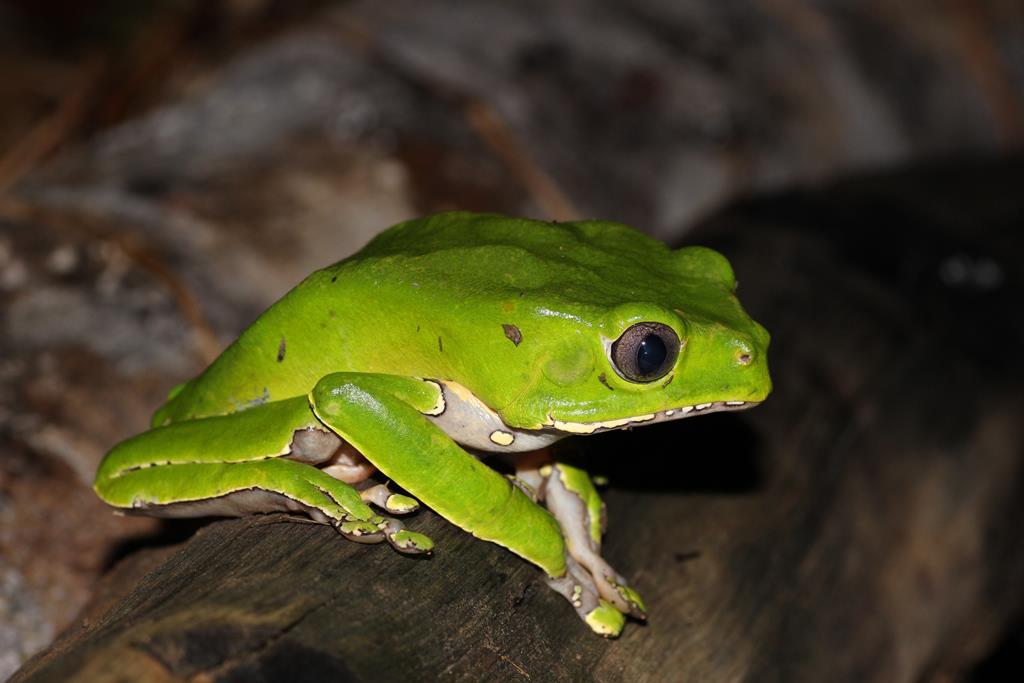
'Kambo', 'campu', 'toad', 'vacino da floresta.' All these are names that are given to the secretion of an arborifera frog that lives in the northwestern part of the Amazon jungle (Peru, Colombia and Brazil) . The scientific name of this frog is 'Phyllomedusa bicolor' or 'Giant Monkey Frog'. In this article I will use the name "Kambo". Originally 53 tribes used this secretion but now it is known that only 13 small tribes continue to use it. It is used to be free of Panema, (name given to negative things) as well as for the magic of hunting and as a powerful medicine against malaria, snake bites, yellow fever and other epidemic diseases.
Scientific research of the Kambo = 9 powerful bioactive peptides.
Scientific research on the secretion of this frog began in the 1980s. Nominated for the Nobel Prize, Italian scientist Vittorio Erspamer of the University of Rome, wrote that this secretion contains a "fantastic chemical cocktail, with possible medical applications, unmatched by any other amphibian '(1). "Among the several dozens of peptides found in the Kambo, about 7% are bio-active." (1) These bind to receptors in the brain, causing chemical reactions in the human body Until now, researchers have found nine bioactive peptides that have a potent effect on the gastrointestinal muscles, gastric and pancreatic secretions, blood circulation, and stimulation of the adrenal cortex and the pituitary gland. "Phyllomedusin strongly affects the intestines and contributes to deep purging. Phyllokinin and phyllomedusin are potent dilators of the vessel, which increases the permeability of the brain's blood barrier. This facilitates access of these two peptides to the brain as well as the active peptides. Caerulein and Sauvagine cause a drop in blood pressure accompanied by tachycardia. These also stimulate the adrenal cortex and the pituitary gland, which contributes to an increase in sensory perception and endurance. Both peptides have a strong analgesic effect, improve resistance, increase physical strength and in general, improve the ability to withstand pain and stressful situations. They have a medicinal potential that facilitates digestion, and analgesic effects have been demonstrated for those with renal colic, pain caused by peripheral vascular insufficiency and carcinogenic pain. Dermorphin and deltorphin are potent opioid peptides 4,000 times more potent than morphine and 40 times stronger than endogenous endorphins type B. (1). In the 1990s a new peptide, Adenoregulin, was discovered by John Daly's team at the National Institute of Health in the USA. Adenoregulin works in the human body through the adenosine receptors, a fundamental component in all human energizing cells. These receptors may offer an option for the treatment of depression, stroke and cognitive impairment diseases such as Alzheimer's. Scientific research on Kambo peptides is opening new perspectives on how the human brain works. The properties of the Kambo peptides cover a wide range of possible medical uses in the treatment of brain diseases such as Alzheimer's and Parkinson's, depression, migraines, blood circulation problems, vascular insufficiency, organ diseases, skin problems and the eyes, fertility problems in women and men, AID, hepatitis and cancer. Other interesting medical features of this secretion are its anti-inflammatory effects, its ability to destroy microbes and viruses and to heal infections. (1) Due to the presence of these nine peptides, the Kambo is one of the strongest natural antibiotics and anesthetics found in the world and one of the strongest natural media in addition to enhance our immune system. Kambo treatments have short and long term effects. "In the short term, the effects are a state of alertness, good humor, greater resistance to fatigue, hunger and thirst" (1), the ability to focus and concentrate more easily, and a mental calm that can last several days or weeks In the long term, the Kambo empowers the immune system, overcomes fatigue and improves the state of health.